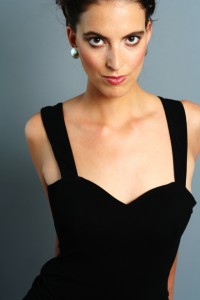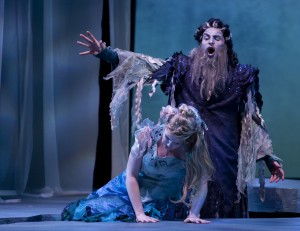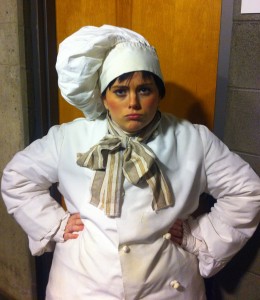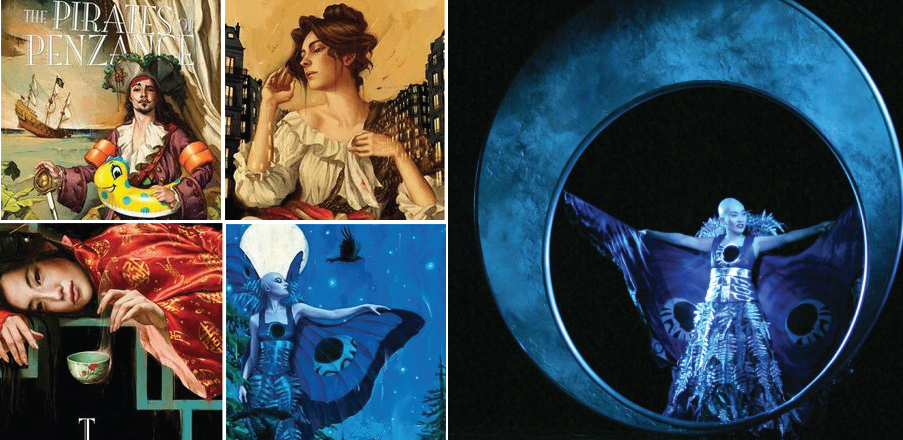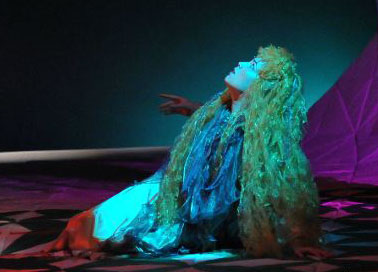JENICA CHUAHIOCK (article for The Ubyssey, February 9, 2012)—Nowadays every fairy tale has dozens of adaptations, but few could ever beat the original. This week, UBC Opera brings back the Czech masterpiece Rusalka by Antonín Dvorák, one of the earliest versions of The Little Mermaid story.Based on Czech folklore, Rusalka is the tragic love story of a water sprite who falls in love with a human prince. This story was later adapted by Hans Christian Andersen in the 1800s, and more popularly by Walt Disney Studios in 1989.
But unlike the more popular versions of The Little Mermaid, Rusalka as an operatic piece is noticeably more sinister, combining Czech folklore with Dvorák’s ethereal music. “I grew up on fairy tales and princesses, so it’s such a privilege to be able to play the original version of The Little Mermaid,” said Kaleigh Harrison, who plays Rusalka. “[Rusalka] has a darker side to it, and that comes out of Czech mythology and storytelling. But it’s got a lot of the same heart that The Little Mermaid story has that we’re used to, and many of the same characters”.
Even with some differences, Rusalka along with other variations of The Little Mermaid is still the story of a young woman asserting control over her heart and destiny, regardless of what consequences that entails. “I think the darker story of Rusalka is great,” said Kwangmin Brian Lee, who plays the prince.
“There are a lot of talks now saying that these Disney princesses are giving the wrong idea of what women should be like, and Rusalka is totally opposite. I think that’s something all of us should really feel, that women are very independent. Their fate does not go about changing because of the men, but because they are the individual.”

“What Rusalka does is try to transcend her own fate as a water nymph into the human world, which is the destruction of the natural order of things,” added Scott Brooks, who plays Vodník. “That’s the essence of tragedy and everyone has to suffer for it. [Here] you have someone from the spirit realm trying to get into the human world, and what it points up is just how many of the same mistakes we’re capable of making.”
Romance, betrayal, redemption and tragedy are ultimately what make Rusalka an honest portrayal of doomed love. “It’s pretty exciting to be part of something so big,” said Gabriele Thielmann, the concert mistress for Rusalka. “[That] means a lot people here, and across the world.”
“We’re otherworldly in this piece,” said Nancy Hermiston, director of UBC Opera. “We’re in the human world, and we’re in the fairy tale world of Vodník and Rusalka, so it’s larger than life.”


 Follow
Follow